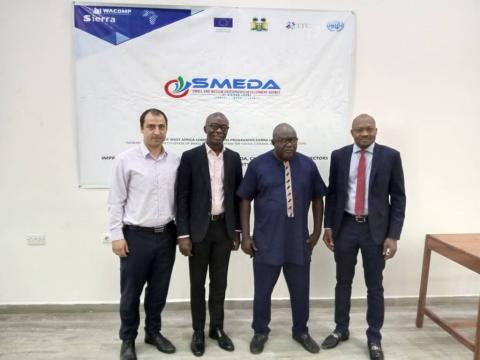By Alpha Abu
Representatives of some key financial institutions in Sierra Leone are participating in a two-day training on how to capacitate Small and Medium Enterprises (SMEs).
The training which began yesterday at the Brookfields hotel in Freetown is organised by UNIDO in collaboration with International Trade Centre (ITC) and the Small and Medium Enterprise Development Agency (SMEDA).
EU Programme Officer, Nikola Kutrin in addressing the trainees at the start of the exercise mentioned the economic challenges that he said have been brought about by the Ukraine-Russia war and the COVID-19 outbreak. He said developing countries including Sierra Leone have been severely impacted.
He said there is a need to develop the private sector which can be realised by ensuring the development of the country’s industrial base for more produce output at a local level.
Kutrin acknowledged the importance of banks and other financial entities in working with private businesses in light of the challenges faced by the private sector.
The Chief Executive Officer (CEO) of SMEDA, Shiaka Sannoh in his statement stressed the importance of Small and Medium Enterprises (SMEs) in the growth of the economy but admitted the numerous problems limiting the growth of SMEs.
He spoke about the constraints of the private sector such as high-interest rates, collateral criteria, and the general difficulties in accessing monies through mainstream financial institutions. He also mentioned how SMEDA has been assisting in the marketing, customer relationship, and management skills of SMEs.
Sannoh said the training should therefore provide SMEs with the skills to improve their businesses which will in turn provide jobs and more revenue for the government in the area of taxation.
He said Financial Service Providers and SMEs should be viable business partners and described the engagement as significant in that it will help overcome the perennial problems faced by SMEs.
Participants at the training discussed the impediments to the growth of SMEs such as non-competitiveness rewards and benefits, low commercialization, poor technology uptake, low bargaining power, and low focus on marketing and branding.
Lack of know-how and resources, limited non-banking avenues, and poor creditworthiness were the other problems discussed.
The training ends today.
Copyright © 2022 Politico Online (12/10/22)








